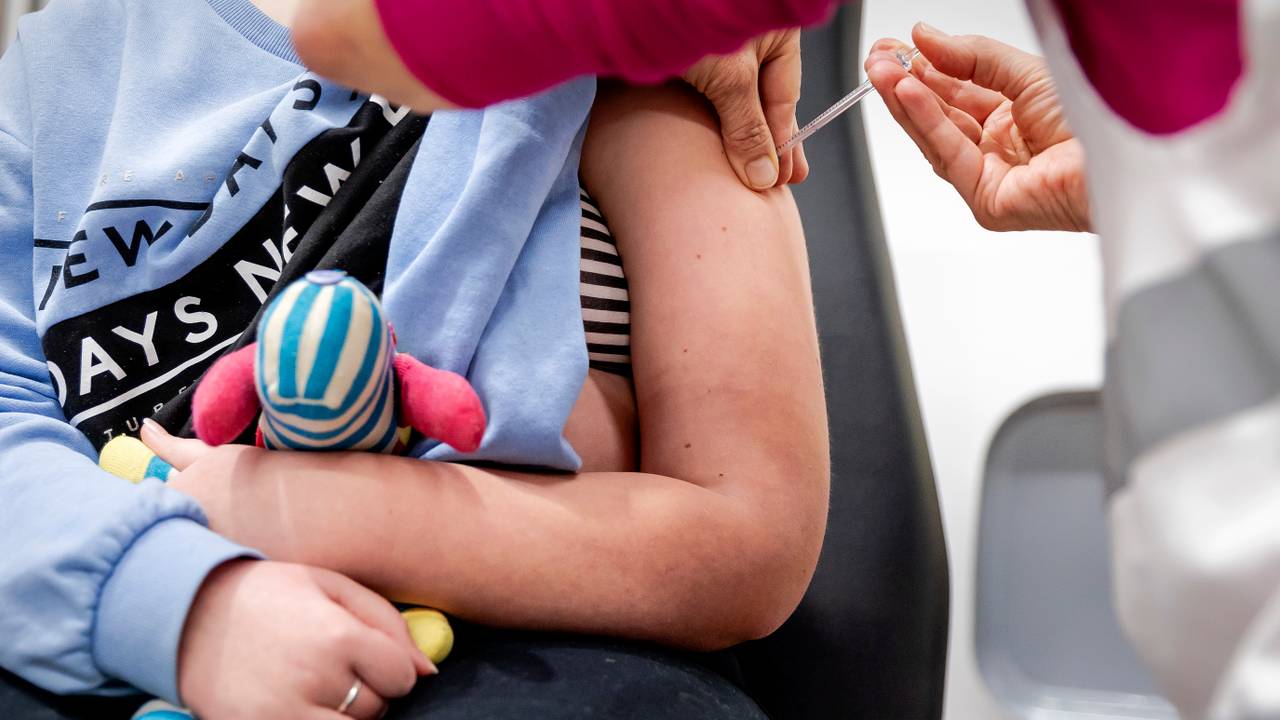In Boekel and Loon op Zand, the number of complete vaccinations against infectious diseases among children under the age of two has fallen sharply since the Corona wave. Both municipalities were severely affected by the COVID-19 virus in 2020 and 2021. It was not investigated whether there was contact, but in all municipalities in Brabant, the vaccination rate in Boeckel fell as fast as it could since Corona, by 28 percent to nearly 70 percent.
In Loon op Zand, where the first coronavirus patient was officially detected in 2020, almost all children between the ages of 0 and 2 got their childhood vaccinations in 2019. This year they are almost a quarter less. GGDs in Brabant know the downward trend. There are no plans for additional campaigns, although consideration is being given to the possibility of more ‘tailor-made’ vaccines being offered or whether this development could be responded to differently.
According to the GGDs, Boekel’s low percentage is due to administrative bottlenecks, among other things. The municipality also has a relatively small number of young children and a particularly marked decrease is observed. Moreover, GGD does not see any other specific explanation.
Altena scores low again
Altena is a municipality in Brabant where the percentage is even lower: over 74 percent. Fall was still here. The three GGDs in Brabant in a joint response: “In Altena, the vaccination rate has always been somewhat lower. This is no different now.”
They agree that since the Corona pandemic, the small group of people who do not take a vaccine has increased slightly with the various vaccinations from the National Immunization Program.
The exact motives are not known
“Vaccination is voluntary and we don’t know exactly what the parents’ motives are for doing this or not. It is also not recorded that ‘retards’ occur in all strata of the population and cannot be linked to religion or belief alone. But vaccination remains important to protect yourself and others, because the risk of outbreaks of infectious diseases It could increase in the long term as the vaccination rate decreases,” says the GGDs.
This is why they continue to focus on information and conversations with parents and young people to keep them well informed. GGDs: “Only in this way can they make a well-informed choice. Children and young people will once again receive an invitation to the National Immunization Program this fall.
Exactly ten years ago, the Bible Belt in particular, to which Altena also belonged, was struck by a measles epidemic. The vaccination rate is so low in some parts of the country that a measles outbreak, for example, is lurking again, according to the National Institute of Public Health and the Environment (RIVM).
Minister of State Martin van Oijen spoke on public health of a very worrying decline. For the first time in decades, vaccination coverage for the younger age group was just under 90 percent last year, the RIVM reports. The institute is also concerned with this trend.
“Health inequality” is imminent
In Brabant, the average in 2019 was 92.2%. The most recent poll indicates a drop of nearly 9 percent, to 83 percent. Jane Marie Hamnet, director of the National Immunization Program (RVP), also hopes the downward trend could be reversed. Otherwise, according to her, there is a risk of “health inequality” between vaccinated and unvaccinated people.
On a side note, some people today refuse to record shots. This may lead to some underreporting. The GGDs of Brabant also refer to this in their joint response. A number of management improvements have now been implemented, so that next year the proportions will give a more realistic picture. The Minister of State for Youth and Prevention has pledged to prepare an amendment to the law by 2025, given the bottlenecks identified.
It is unclear whether the refusal is related to the distrust of the government that has developed among part of the population during the coronavirus pandemic.
Look here at the vaccination rate in your municipality:

“Total coffee specialist. Hardcore reader. Incurable music scholar. Web guru. Freelance troublemaker. Problem solver. Travel trailblazer.”







More Stories
GALA lacks a chapter on e-health
Weird beer can taste really good.
Planets contain much more water than previously thought